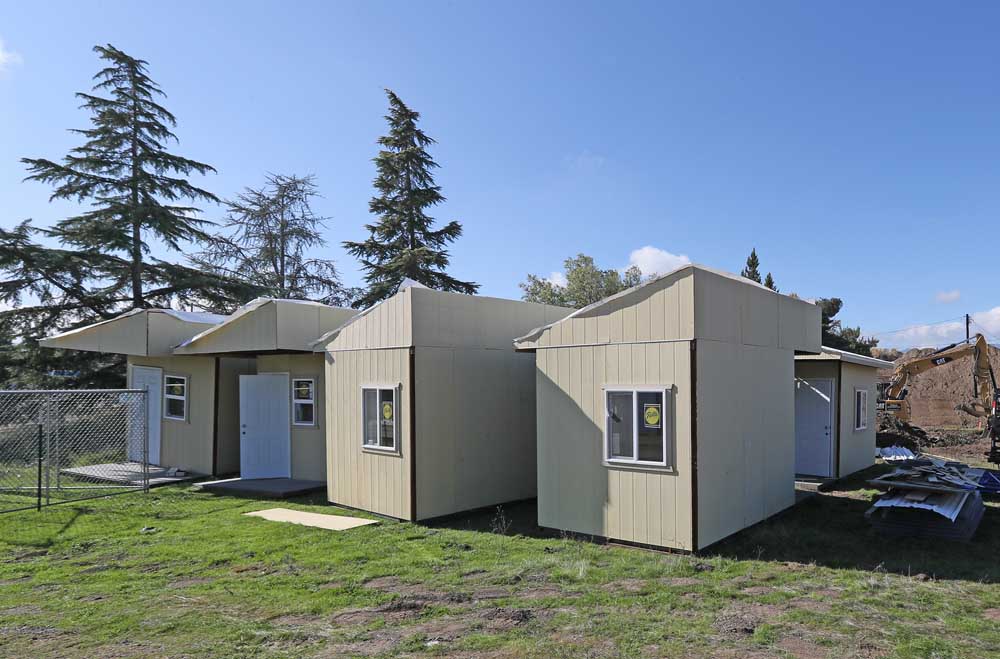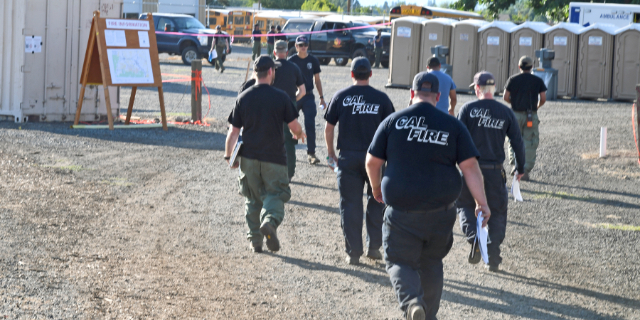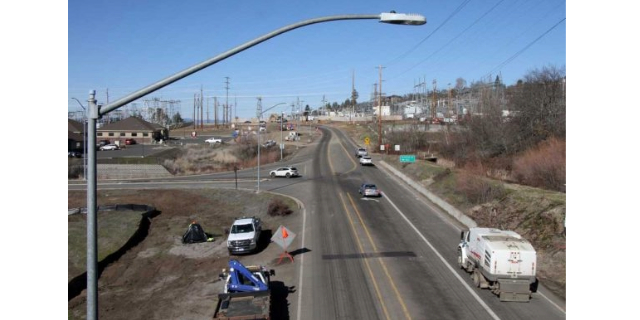‘Nightmare situation’: Medford council sees need for long-term homeless funding
Published 11:45 am Monday, November 20, 2023

- Located less than a mile from Rogue Retreat’s Hope Village, the new campground will have electricity, internet, running water, toilets, shower and laundry facilities, a shared kitchen and a community space. Hard shelters — tiny houses and new small duplexes — will have heating, air conditioning and doors that lock.
The Medford City Council has expressed concern about the long-term viability of Medford’s largest homeless shelter operator, even after members approved more money for its operations.
Trending
“I’m concerned about what we’re going to do if this money dries up,” Councilor Nick Card said at Thursday night’s council meeting. “Without Rogue Retreat, we would be in a nightmare situation.”
The council unanimously approved $495,775 of state money to go to Rogue Retreat to help pay for its operations, which includes sheltering hundreds of homeless individuals each night.
Money from the state has been given to Medford many times in recent years for homelessness, and the city, acting as a sort of middleman, has passed the money onto Rogue Retreat, which operates the Kelly Shelter, Hope Village and Rogue Retreat Crossings (formerly called the Urban Campground).
Trending
“I’m afraid of what our future looks like if the state decides this is not what they’re going to continue to fund,” Card said.
He said the council should continue to let legislators know that state help is needed to sustain programs such as Rogue Retreat’s.
The latest installment to Rogue Retreat comes from the state’s Housing and Community Services Department, which provided an almost $1.3 million grant on Feb. 2.
The money was used to purchase 915 Town Centre Drive for construction of a parking lot, which should be completed in December. Other improvements at the nearby Navigation Center along Market Street, which now houses the Kelly Shelter, are planned.
An additional $200,000 was made available as part of the grant, and the deadline to spend all the grant money was extended from June 30 to Dec. 31.
After discussions with the state, it was determined Rogue Retreat could qualify for reimbursement of some services, which includes hiring a certified interpreter for a variety of tasks, a guest host, case manager and peer support specialists.
Kelly Madding, deputy city manager, said, “The bottom line is that programs like this will not exist without some sort of government subsidy.”
Madding said Gov. Tina Kotek’s executive order signed at the beginning of the year indicates she wants ongoing state funding to deal with homelessness and the housing crisis.
She said the state has indicated Oregon currently has a maximum number of shelters already in operation, but the state also wants to increase the amount of housing available statewide to deal with the more long-term problem of homelessness.
State officials are attempting to try to understand the ongoing funding needs of shelter operators that could lead to a more sustainable flow of money.
“There are a lot of spreadsheets going back and forth as to how much they need to operate,” Madding said.
Brian Sjothun, city manager, said he’s seeing movement at the state level to directly fund the homeless service provider and take Medford out of being the middleman.
He said it typically takes two different council actions over a 45-day period to pass the state money to the service provider.
“It’s incredibly complicated,” he said.
In a separate action, the council approved a $300,000 grant to The Salvation Army for a new two-story, multifamily building at its Crews Road Campus in north Medford. The city money, along with other grant money, would be used for the project, which would provide transitional housing.









